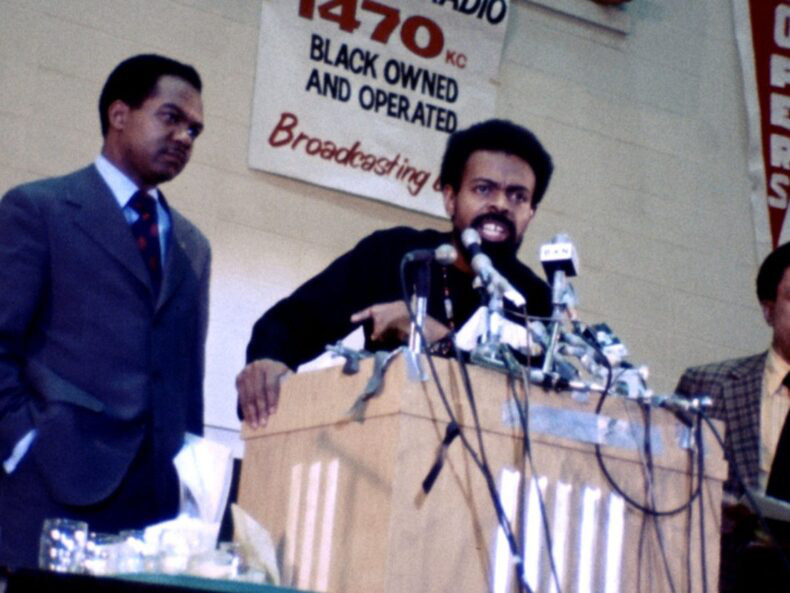Critipeg: Nationtime
★★★★ out of 5
Plays until March 11 on Cinematheque At Home
Nationtime reports on the historic National Black Political Convention held in Gary, Ind. in 1972.
Shot in a time following the 1960s anti-establishment movement, the film documents Black people in America rallying together to create political change. At the time of the initial release in 1972, the documentary footage was deemed too confrontational for television broadcast, and, instead, a shortened 58-minute version was circulated.
Directed by prolific filmmaker William Greaves and narrated by Sidney Poitier, the entire 80-minute documentary was digitally restored in 2020 with the help of Greaves’ widow, filmmaker Louise Greaves. Funding from Jane Fonda and the Hollywood Foreign Press Association helped the film return to the public eye at a time when the Black Lives Matter movement has brought racial injustice to the forefront worldwide.
The murder of George Floyd in 2020 at the hands of the Minneapolis police brought into the glaring public light the ongoing injustices Black people face. That year, the largest protests in the history of the Black Lives Matter movement were held globally.
The National Black Political Convention followed on the heels of the 1968 National Party Conventions. It was generally felt by Black America that both parties in America had failed Black people.
The 1972 convention was a convergence of political voices including Coretta Scott King, Reverend Jesse Jackson, Richard Roundtree, Dr. Betty Shabazz and Dick Gregory, among others.
Intent on self-determination, the formation of a third political movement was brought forward by organizers to convention delegates. The hope was that minorities, disillusioned youth and the “best of white America” would band together to form a new coalition and make their collective voice heard at the ballot box.
In his narrative, Poitier describes the historical political gathering as the first time Black people came together to combine the powers of the ballot and protest.
“They have come with one purpose in mind, and that purpose has eluded our people ever since we left the distant shores of Africa. That purpose is to unite all the segments that make up what we call Black America,” Poitier says in the film.
The quality of the filmmaking turns viewers into witnesses of a historic event, with the camera effectively catching the whole of the convention, zooming in on speakers, panning to delegates on the floor and taking viewers backstage to listen in on interviews.
Between speakers, actor Harry Belafonte recites poetry in his smooth voice to inspire and rally convention delegates. Words such as “Out of the long wintry night of our oppression in America, we are witnessing the birth of a new golden age for our people” are a call to action for the 10,000 delegates in attendance.
This echoes the way a great deal of hope was pinned on the outcome of the event. The thrust of the convention was aimed at the emergence of an independent national Black political agenda.
It was anticipated that history would be made in Gary, and that Black America would unite politically, effectively addressing the many problems brought about by the centuries-long oppression by white people.
Unfortunately, unclear audio from the speech of the Michigan delegation spokesperson on the last day means viewers miss an unexpected turning point: not wanting to support the agenda brought forth and championed by the New York delegation, a portion of the Michigan delegation walked out.
That occurence meant, in the end, that consensus was not reached and that the convention’s main goal of self-determination was not attained.
An overview of this pivotal moment in the struggle for dignity and equal rights for Black people across America, this documentary helps educate viewers on this particular moment in history.
This year marks the 40th anniversary of when Black Americans were invited by Gary mayor Richard Hatcher to form a Black agenda. That political agenda states that any change for the benefit of Black America be initiated by Black people. It was to be the new birthing of Black politics where both social transformation and deconstruction would right the wrongs of a legacy of slavery in America.
Published in Volume 76, Number 19 of The Uniter (March 2, 2022)







